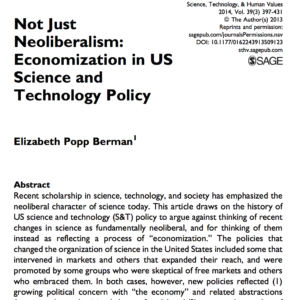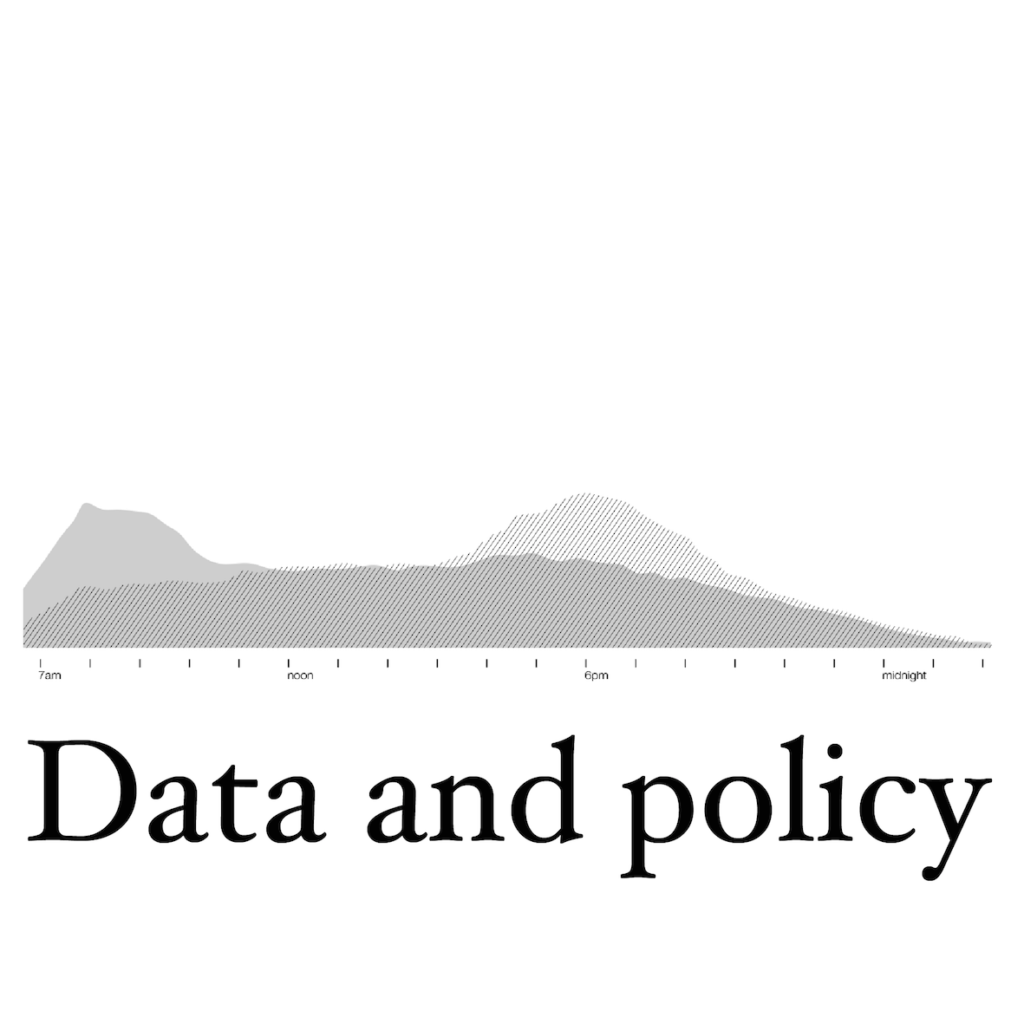Berman, E. P. (2014). Not Just Neoliberalism: Economization in US Science and Technology Policy. Science, Technology & Human Values, 39(3), 397–431.

The title of this paper says it all really. It’s good though to have a cogent argument about the relations between ideology, policy and the changes in how science is being done. I for one very easily slip into an accusatory refrain when talking about and usually criticising what I’ve seen to be the neoliberal (non)interventionist and policy direction in education and science. Elizabeth Berman presents a much more measured position and convinces me that it’s better understood as an economization, as she calls it, where the broader shift is towards prioritising scientific research and innovation vis-a-vis the economy and specifically seeing them as economic inputs. This recognises the tensions and complications and the competing interests that have run through the changing status of the sciences (in the US, but similarly, I think, in the UK).
Something I think Berman leaves open is the relationship between science and innovation. She makes it clear that science and innovation become inexorably linked when science is seen in economic terms. I want, though, to better understand the nexus. Indeed, but conflating science and technology (“S&T” as Berman refers to it), I think there are further complications here that need unraveling, ones pointing to the entanglements of science and technology, and where progress or innovation sits between (or around) them. Can we talk of technology without innovation? If S&T are two-parts of a unit, how can we disentangle innovation?
